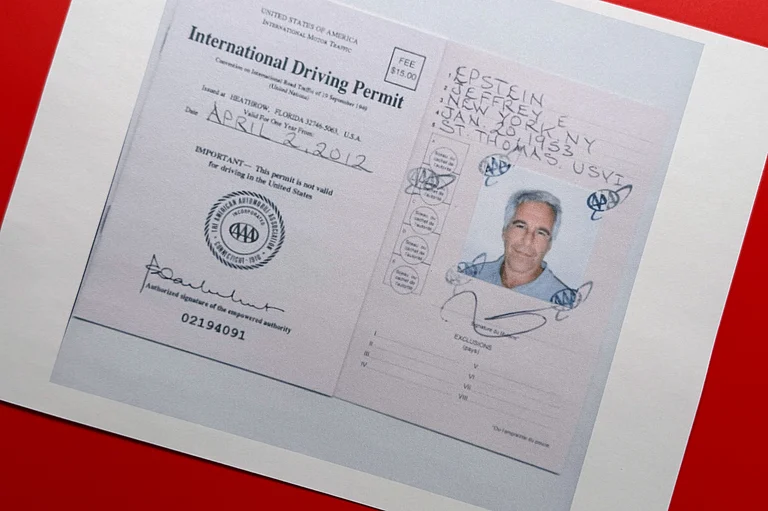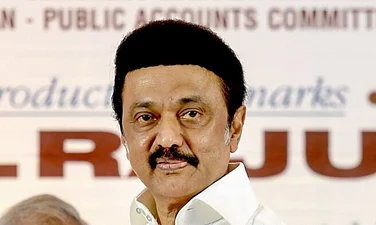BUREAUCRATS then with the Planning Commission recall a heated argument between Om Prakash Chautala, Haryana's chief minister in 1990, and R.K. Hegde, then deputy chairman of the Commission, over the plan allocation for the state. Chautala wanted a sanction for private medical colleges to be run on donation, as was the case in Karnataka. Hegde opposed the demand, saying that the Janata Dal manifesto was clearly opposed to capitation fees. "We all know how a manifesto is prepared," argued Chautala. "But you cannot expect students from my state going to Karnataka and paying huge donation." Hegde relented.
A year later Finance Minister Manmohan Singh, then still a political novice, told his party colleagues that the pledge in the 1991 manifesto that prices of essential commodities would be rolled back to July 1990 levels was 'imaginary' and impossible for him to achieve. R.R. Sahu, a prominent Rajya Sabha member from the Congress, even demanded Singh's resignation, but in vain.
Five years hence, Singh has perfected the art of making promises without fulfilling them. He helped draft the party manifesto for the 1996 polls which promised, among other things, absolute removal of unemployment by 2002, an unachievable target. So when the Congress manifesto said all 1991 pledges had been fulfilled, it was deemed an election rhetoric not worthy of debate.
Similarly, the Bahujan Samaj Party (BSP) was not off the mark when it said elections are not fought on manifestos, and decided to do away with them. But others, including the Congress, the Congress (T), the BJP, the Janata Dal and the Left parties were orthodox enough to carry on the tradition.
While the BJP's 80-page manifesto is an indictment of the Congress 'misrule', the Congress manifesto, exactly half the BJP's in size, projects Rao as the most successful leader of our times. "Since 1991, the Congress has ushered in unprecedented change," it claims while playing up the stability and secularism themes. The ruling party had the advantage of releasing the manifesto as late as on April 12, much behind the BJP and the CPI(M), and was therefore able to incorporate the other parties' promise of introducing legislation in favour of the Lok Pal to deal with corruption charges, with the Prime Minister in its ambit. It also claims that 27 per cent of the reservation to the backward classes was a result of its initiative.
And the hawala scandal has influenced the Congress manifesto more than any other issue. The last seven points deal with prevention of corruption and insulation of enforcement agencies from interference in discharge of their duties. But it is silent on specific measures to check the criminal-politician nexus. It is equally vague on reservation for women in Parliament and state legislatures—with both the BJP and the CPI(M) committed to 33 per cent each.
For its part, the BJP may have tried to cam-ouflage its Hindutva plank as a conceptual one, without any mention of Hindus or Muslims. It simply says that if it comes to power, it will "facilitate the construction of a magnificent temple at Ayodhya". Diluted Hindutva is accompanied by a retreat on economic issues, as a case is made for a definitive role for public sector undertakings in ensuring a sustainable minimum quality of life for the citizens. Its stand on transnationals has been left ambiguous: "We will encourage foreign investment in infrastructure areas of high technology." To secure the support of the salaried class, the BJP advocates an income-tax exemption level of Rs 60,000. It, however, does not talk about reversing the economic reforms.
The CPI(M), a senior partner in the Left Front-National Front combine, however, promises to do what the BJP does not. The brief 46-point manifesto labels both the Congress and the BJP as the country's enemies, one promoting social and economic disparity and the other encouraging the forces of communalism. And with its two adversaries embroiled in the hawala controversy, the CPI(M) speaks from a high moral pedestal. "The hallmark of the Narasimha Rao regime has been the exponential growth of both the number of scams and the amount looted through them," it notes.
And the BJP comes in for criticism for deviating from its projected swadeshi line by awarding the Enron contract and, of course, for its alleged responsibility for "communal riots" in the wake of the Babri Masjid demolition. It opposes privatisation and claims economic reforms are reversible. It demands the incorporation of the right to work as a fundamental right in the Constitution. It advocates massive electoral reforms, including the introduction of proportional representation in the electoral system.
But while ruling parties tend to forget pledges, opposition parties, because of their lack of involvement in governance, have to be content with the fact that a manifesto is, at best, an academic exercise. That is why manifestos never get to the electorate, something political parties understand.


























